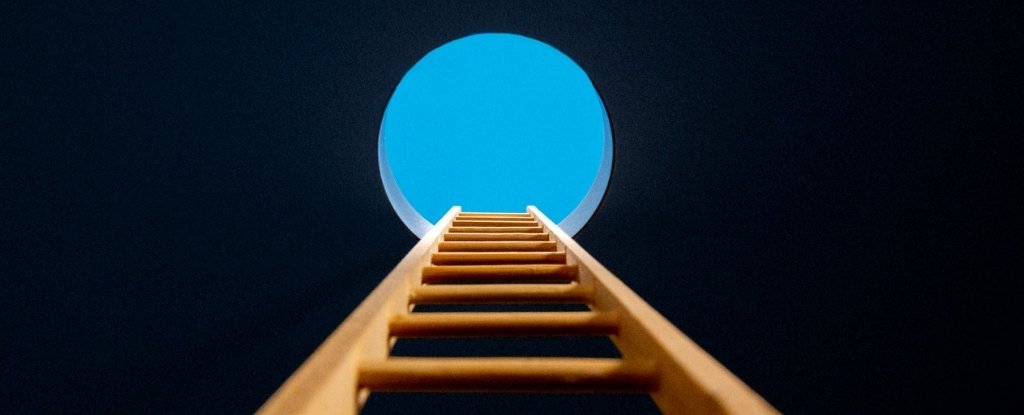Products You May Like
Living in the present can be a present in itself, but during a global pandemic, when the world is in crisis, reflecting only on the ‘now’ might not be your best tactic.
If we want to get through this tragedy stronger than ever, psychologist Jennifer Aaker and Szu-chi Huang from Stanford University argue we need to switch our mindsets.
Success is not a box to be ticked on your bucket list and forgotten thereafter, they say. Rather, life should be seen as a journey, which requires us to reflect on the steps that brought us achievement or failure in the past and apply those lessons in the future.
It might sound obvious or cliched, but evidence suggests applying a “journey metaphor” to life can have a real impact on your happiness.
“Having a journey mindset can help,” Huang explains. “As we think about navigating COVID-19 and how it has impacted our lives, a focus solely on the destination can result in a lot of frustration, because if a problem is not solved right away and we fail at reaching our destination, all seems lost.”
And it’s really easy to think that way in 2020 when everything seems to be going south and the only thing we’re holding out for is a vaccine. But despite everything happening in the world, we might be able to cope with it better if we change our mindset slightly and stop looking for a solution.
In the past, psychologists have found that seeking happiness is not actually the surest path to feeling happy. It’s kind of like the mirror of Erised in Harry Potter, you can’t receive happiness if you’re focused on the end goal too much.
Holocaust survivor Viktor Frankl hit on this point explicitly in his book Man’s Search for Meaning.
“To the European it is a characteristic of the American culture that, again and again, one is commanded and ordered to ‘be happy.’ But happiness cannot be pursued; it must ensue. One must have a reason to ‘be happy.'”
The important difference between pursuing ‘meaning’ and ‘happiness’ in life is something that Huang and Aaker have been studying for years.
In a review paper published in October last year, they summed up the results of six experiments they’d conducted on the journey mindset, which involved more than 1,600 participants and were focused on dieting and fitness regimes.
One of the experiments was based on a 14-day walking program in which steps were tracked to achieve an ultimate goal. After that goal had been reached, the subjects were given the opportunity to continue tracking their steps.
The authors found those who thought about the program as a journey walked close to 55 percent more during the three additional days than those who simply had a destination (meeting the goal) in mind.
“The journey mindset is about the continuation from our past meaningful successes and failures to the present moment and into the future,” says Aaker.
“Success does not exist in isolation – it has a past and it needs to be sustained into the future.”
So how do we achieve a journey mindset? During this pandemic, many of us are connecting more with old friends and family, picking up new hobbies, and finding unique ways to get work done at home. It’s not all bad; there’s still hope among the tragedy.
Meditating on the good and bad, or writing down your thoughts, goals and feelings in a journal on an daily, weekly or even annual basis can help you achieve a journey mindset, Huang and Aaker said in their 2019 paper.
Even if there’s nothing good to reflect on in that moment, you can always go back to previous successes and this might help you find a path for new ones. Success, after all, is not all about goals; it’s also about growing, learning and changing.
“All of these are skills and lessons that we can carry on even after COVID-19,” says Huang.
“Once people learn how to best cope with these challenges, the journey mindset can reinforce such growth and thus sustain people’s mental health in the future—especially when future triggers or stressors occur.”
They’re not the only researchers to show the importance of thinking beyond finding immediate happiness.
In one 2003 study, when participants listened to classical music, those who tried to force happiness while listening, as opposed to just passive listening, ended up unhappier after the song ended.
Instead of trying to generate happiness from nothing, psychologists say we should focus more on finding meaning in life, whether that be through family, friends, nature, religion or working for the greater good.
While focusing on those aspects of life might not lead directly to happiness, it does seem to give us the best shot at it, while also providing a safety net of purpose, coherence and worth just in case we can’t attain it.
Huang and Aaker’s latest review was published in American Psychological Association PsycArticles.
